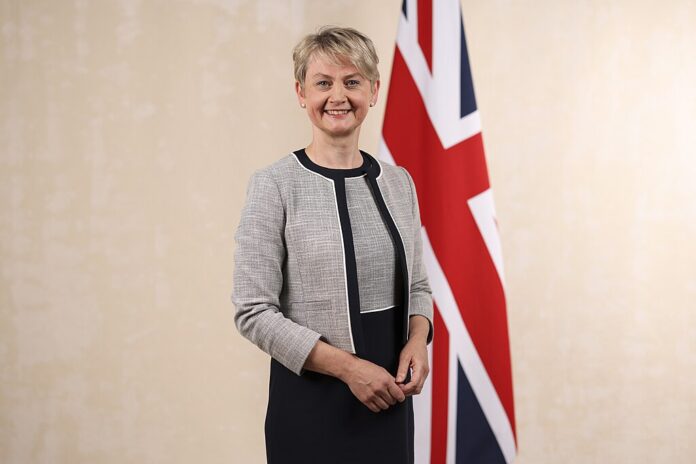Home Secretary Yvette Cooper acknowledges the growing issue of illegal small boat crossings but declines to set a specific timetable for reducing them
In a recent interview on Sunday with Laura Kuenssberg, Home Secretary Yvette Cooper faced mounting pressure over the surge in small boat crossings into the UK. With more than 20,000 individuals having arrived illegally by sea since Labour took power, an increase from 17,020 during the same period last year, Cooper conceded that the numbers were “far too high.” However, she refused to outline a concrete timetable for tackling the crisis, stressing that the issue was more complex than simply setting deadlines.
Cooper pointed out that while the problem of illegal crossings is undeniable, simplistic slogans like former Prime Minister Rishi Sunak’s “stop the boats” pledge will not solve the issue. She warned against quick fixes, emphasising that the government’s response needs to be both strategic and multifaceted. Her remarks came in stark contrast to the rhetoric of the Conservative Party, which has heavily criticised Labour’s handling of border control since taking office.
The sharp rise in illegal arrivals has reignited the debate over how to handle migration and immigration enforcement in the UK. While Labour’s approach focuses on addressing the root causes of migration and providing legal routes, the Conservatives have doubled down on a tough stance. Shadow Home Secretary Chris Philp, responding to Cooper’s comments, indicated that a future Conservative government would seek to reinstate a Rwanda-style immigration scheme. This controversial plan, which involves sending migrants to Rwanda for processing, was championed by the Conservatives in a bid to deter small boat crossings.
Embed from Getty ImagesPhilp also reiterated the Conservative commitment to introducing a “hard, low cap on legal migration,” further cementing the party’s position on controlling immigration. Critics of this policy, however, argue that it could create unnecessary bottlenecks and harm the UK’s international standing in terms of refugee rights and humanitarian obligations.
The issue of small boat crossings has become a focal point in the ongoing political battle between Labour and the Conservatives, with both parties offering drastically different solutions to the complex migration crisis. As the debate intensifies, it remains unclear how the UK will navigate the delicate balance between border security and human rights.
Cooper’s refusal to set a timetable for resolving the crisis is likely to be seen as both a political strategy and a recognition of the complexities involved in curbing illegal immigration. The Home Secretary continues to assert that addressing the root causes of migration, such as conflict and instability, is key to finding long-term solutions, but whether this approach will gain traction in the face of rising public concern remains to be seen.
